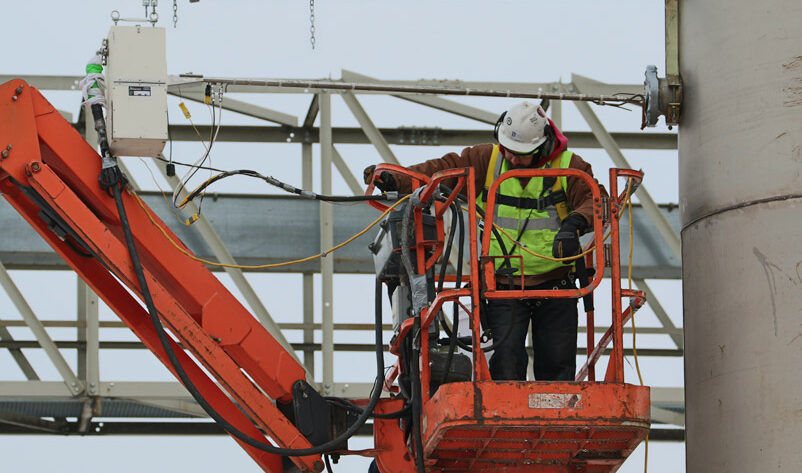DIN EN 14902 Trace Metals in Airborne Particles Test
The DIN EN 14902:2003 standard provides a comprehensive framework for quantifying trace metals present in airborne particles. This test is particularly relevant to the oil and gas sector where emissions from industrial processes can significantly impact air quality both locally and globally.
Trace metals, such as lead (Pb), cadmium (Cd), chromium (Cr), nickel (Ni), copper (Cu), and zinc (Zn), when present in airborne particles at elevated levels, can pose serious health risks to workers and the public. The DIN EN 14902 test is designed to ensure compliance with environmental regulations and occupational safety standards.
The test methodology involves collecting samples of air particulates using specialized sampling devices that are capable of capturing fine aerosols and particles down to ultrafine sizes (typically less than 1 μm). Once collected, these samples undergo rigorous analysis using techniques such as inductively coupled plasma mass spectrometry (ICP-MS) or atomic absorption spectroscopy (AAS).
The primary objective of this test is to provide accurate quantification of trace metal concentrations, which can then be used for risk assessment and mitigation strategies. This information is crucial for industries like oil & gas, where continuous monitoring of emissions is essential for maintaining compliance with environmental regulations.
For the oil & gas sector, ensuring that emissions meet stringent standards not only protects workers but also helps in meeting international environmental agreements such as the Paris Agreement. The test results can guide the implementation of emission control technologies and processes to minimize trace metal releases into the atmosphere.
The DIN EN 14902 standard is widely recognized for its robustness and reliability, making it a preferred choice among laboratories specializing in emissions testing. However, achieving accurate and reliable results requires careful sample preparation, appropriate analytical techniques, and stringent quality control measures throughout the entire process.
It’s important to note that trace metals can also be introduced into air particulates through various other sources beyond industrial processes, such as vehicular exhaust, construction activities, and even natural phenomena. Therefore, understanding the source of these emissions is critical for effective management and reduction strategies.
In conclusion, the DIN EN 14902 test plays a vital role in ensuring that oil & gas operations comply with international standards for environmental protection and occupational safety. By providing precise measurements of trace metal concentrations, this test supports informed decision-making aimed at minimizing adverse impacts on human health and the environment.
Benefits
- Compliance Assurance: Ensures adherence to international standards like DIN EN 14902 for trace metals in airborne particles.
- Risk Mitigation: Identifies potential health hazards associated with elevated levels of trace metals, enabling proactive measures.
- Data Accuracy: Provides reliable and precise quantification of trace metal concentrations through advanced analytical techniques.
- Emission Control: Supports the implementation of effective emission control strategies aimed at reducing environmental impact.
- Regulatory Compliance: Facilitates meeting stringent regulatory requirements for emissions management in various sectors, including oil & gas.
- Health Protection: Safeguards worker and public health by monitoring trace metal levels in the air and taking necessary actions.
Eurolab Advantages
At Eurolab, we pride ourselves on delivering exceptional service and expertise in DIN EN 14902 testing. Our team of seasoned professionals ensures that every test is conducted with precision and care, adhering strictly to international standards.
- Advanced Facilities: Equipped with state-of-the-art laboratories and cutting-edge instrumentation for accurate analysis.
- Experienced Staff: Our team comprises highly skilled scientists and technicians who are well-versed in the nuances of this complex test.
- Comprehensive Support: From initial consultation to final report generation, we provide comprehensive support throughout the testing process.
- Timely Delivery: Ensures that clients receive their results promptly, allowing for swift decision-making and action.
- Continuous Improvement: We are committed to staying at the forefront of technological advancements in emissions testing.
Choose Eurolab for your DIN EN 14902 trace metals in airborne particles tests, where precision meets reliability. Let us help you maintain compliance and protect your environment.
Quality and Reliability Assurance
- ISO/IEC 17025 Compliance: Our laboratory is fully accredited to ISO/IEC 17025, ensuring the highest standards of quality in all our tests.
- Traceable Instruments: All analytical instruments used are traceable to national standards, guaranteeing accuracy and consistency.
- Dedicated Quality Control Procedures: We have robust internal controls to monitor and maintain the quality of our testing processes.
- Regular Calibration: Our equipment undergoes regular calibration to ensure that it performs within specified tolerances.
- Peer Review: Results are subject to peer review by independent experts to further validate their accuracy and reliability.
Our commitment to quality does not stop there. We also invest in continuous training for our staff, ensuring they stay updated with the latest developments in emissions testing technology and methodologies.





